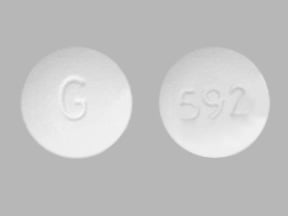
Pilocarpine Hcl Coupons & Savings Card – Discount Prices from $50.87
Generic for: Isopto carpine, Salagen, Vuity
My prescription
Edit
5MG, Pilocarpine Hcl (270 Tablets)
Select pharmacy

CVS
$50.87
COUPON PRICE
Walmart
$68.53
COUPON PRICE
Walgreens
$78.21
COUPON PRICE
Albertsons
$111.71
COUPON PRICEPilocarpine Hcl savings card
Show this card to your pharmacist
CVS
$50.87
BIN
ID
PCN
GRP
019876
LH8D04B2D1
CHIPPO
LHX
Powered by
More prescriptions for presbyopia
More prescriptions for presbyopia
Price history for Vuity (brand) & Pilocarpine Hcl (generic)
270 Tablets, 5MG
Average retail price for Vuity
Average retail price for Pilocarpine Hcl
Average SaveHealth price for Pilocarpine Hcl
Our price history data is based on aggregated prescription data collected from participating pharmacies in America. Our prescription data updates daily to reflect the latest price changes. If you notice a missing data point, it means there wasn't sufficient data available to generate a monetary value for that date.
We analyzed Pilocarpine Hcl prices for (5MG, 270 Tablets) over the last 12 months. The average retail price was $39.58, while the average price using the SaveHealth discount card was $37.60. That's a savings of approximately 5.00% when using our Pilocarpine Hcl coupon.
Compared to the generic version, Vuity had an average price of $125.18 over the same time period. With the SaveHealth savings card, Pilocarpine Hcl is 69.96% cheaper on average than Vuity.
*Retail prices are based on pharmacy claims data, and may not be accurate when we don't have enough claims.
Pilocarpine Hcl dosage forms
Dosage Quantity Price from Per unit 5MG 270 Tablets $50.87 $0.19 5MG 1 Tablet $2.68 $2.68 5MG 20 Tablets $6.06 $0.30 5MG 30 Tablets $7.84 $0.26 5MG 100 Tablets $20.29 $0.20 7.5MG 100 Tablets $45.38 $0.45 7.5MG 270 Tablets $99.42 $0.37
| Dosage | Quantity | Price from | Per unit |
|---|---|---|---|
| 5MG | 270 Tablets | $50.87 | $0.19 |
| 5MG | 1 Tablet | $2.68 | $2.68 |
| 5MG | 20 Tablets | $6.06 | $0.30 |
| 5MG | 30 Tablets | $7.84 | $0.26 |
| 5MG | 100 Tablets | $20.29 | $0.20 |
| 7.5MG | 100 Tablets | $45.38 | $0.45 |
| 7.5MG | 270 Tablets | $99.42 | $0.37 |
